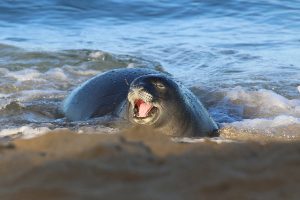18-19, Review of Special Funds, Revolving Funds, Trust Funds, and Trust Accounts of the Department of Land and Natural Resources
Posted on Dec 13, 2018 in Summary|
AUDITOR’S SUMMARY 17 funds and accounts did not meet criteria WE REVIEWED 107 FUNDS AND ACCOUNTS administered by the Department of Land and Natural Resources (DLNR) and reported on 37 of them – specifically, 18 special funds, 1 revolving fund, 9 trust funds, and 9 trust accounts. We found 9 special funds, 4 trust funds, and 4 trust accounts did not meet criteria – specifically, 8 special funds and 1 trust fund should be evaluated to determine if they should be continued; 1 special fund, 2 trust funds, and 2 trust accounts should be closed; 2 trust accounts should be reclassified to trust funds; and 1 trust fund should be reclassified to a trust account. Section 23-12, Hawai‘i Revised Statutes (HRS), requires the Auditor to review all existing special, revolving, and trust funds every five years. Reviews are scheduled so that each department’s funds are reviewed once every five years. Although not mandated by statute, we included trust accounts as part of our review. This is our sixth review of DLNR’s revolving funds, trust funds, and trust accounts, and our second review of DLNR’s special funds. We used criteria developed by the Legislature and by our office based on public finance and accounting literature. For each fund, we present a five year financial summary, the purpose of the fund, and conclusions about its use. We did not audit the financial data which is provided for informational purposes. We do not present conclusions about the effectiveness of programs or their management, or whether the programs should be continued. Inactive funds result in unused moneys of nearly $1.9 million Reporting shortfall Over $26 million of State’s portion of ceded land revenues were not transferred to the State general fund in a timely manner Agency response In reference to the Special Land and Development Fund, we found it did not completely meet criteria of a special fund because there is no clear nexus between the program and the portion of the highway fuel tax that is one of the fund’s sources of revenue. DLNR asserts that there is a nexus between the highway fuel tax and the protection of natural resources. Specifically, according to DLNR, visitors pay the highway fuel tax which funds the department’s natural resource protection programs and, in turn, helps to ensure sufficient access to the State’s natural resources to meet As to our other observations, DLNR agreed that any inactive balances will be returned to the originating fund; that they will comply in filing the required statutory reports; and work with the Department of Budget and Finance to ensure the transfer of the State portion of ceded land revenues annually. |

FUND TYPES SPECIAL FUNDS REVOLVING FUNDS TRUST FUNDS TRUST ACCOUNTS |
